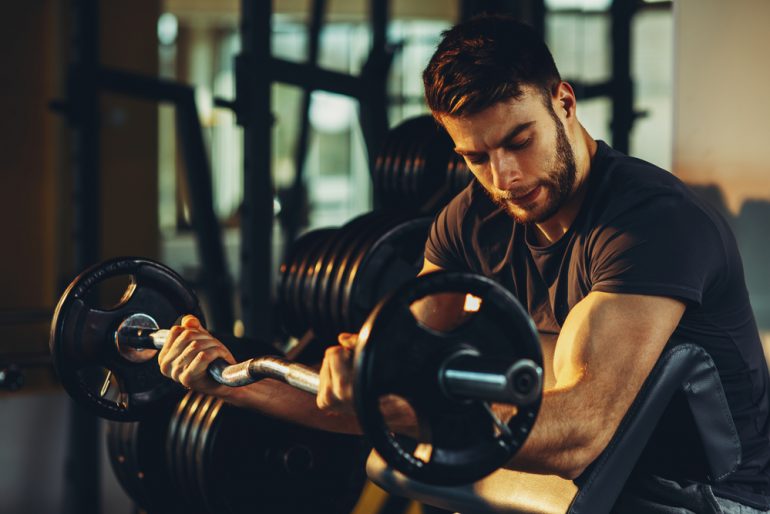The right way to breathe when lifting weights in fitness routine
Exercise tips: Whether you are focused on hitting the perfect deadlift or bench pressing higher than you ever have, using your breath effectively is critical when it comes to an injury-free fitness routine.
Are you obsessed with the physiques of actors such as Hrithik Roshan, Tiger Shroff and others and push yourself to the brink to reach your fitness goals while exercising in the gym? Remember, if you follow a healthy diet plan and an exercise routine, you can also have a physique like them. However, your success will depend on one critical element: how you keep yourself injury free while lifting weights. A proper breathing technique, all fitness experts will say, is crucial in saving yourself from long-term injuries.
Strength training involves using weights to improve muscular strength, improving our metabolism, bone density, and our overall health and fitness. But while many newbies in the gym are concerned about their posture or increasing the number of reps, they ignore a critical component: how they breathe. Whether you are focused on hitting the perfect deadlift or bench pressing higher than you ever have, using your breath effectively is one of the most powerful tools at your disposal.
Your fitness and health depends on how well you breathe, and by holding your breath while weightlifting, you put yourself in danger. “If you are simply focused on ‘powering through’ your heavy workout while holding your breath, you are setting yourself up for long-term injuries. Proper breathing while working out allows more control and even helps you to lift more,” says Rishabh Telang, Fitness Expert, Cultfit.
Why is proper breathing important when lifting weights?
At its most fundamental, breathing provides your body with the oxygen it needs to function. Your body may use your breath to make the movements you’re aiming to do if you inhale and exhale at the proper times, says Preet Pal Thakur, Co-Founder of Glamyo Health. The expert says that you need a strong core and diaphragm for various lifting techniques and that can happen with the right breathing technique. “Your core is engaged whether you’re deadlifting, doing bicep curls, or pushing hard on the leg press. Your diaphragm, which is located above your abs and below your lungs, is a part of your core. It regulates your inhalation and exhalation with its contractions and extensions. Additionally, it can help the rest of your core and enable you to lift heavier weights,” says Thakur.
By deliberately timing your exhalation, you may lift heavier weights with greater form and, most importantly, avoid injuries.
Here are some standards to keep in mind while breathing
1. Steady yourself
Even before you start your counts, stabilise yourself, says Telang. Taking a few deep breaths through your nose and slowly exhaling through your mouth will help you relax and prepare for your workout. However, the work starts much earlier. As you practice proper breathing techniques throughout the day, you’ll be more aware of your natural breathing rhythms, resulting in better control when you work out.
2. Power through, but not literally
Maintain a steady rhythm throughout and avoid breathing shallowly and quickly. If you feel you are getting winded up and can’t take breadth in, hit the brakes and simmer down. Regain control and start again.
3. Go back to our roots
As toddlers, we were taught to breathe through our stomachs but as time went on, we started using our chests to inhale and exhale. When we breathe in through our stomachs, we significantly increase the amount of oxygen that enters our bloodstream, says Telang.
Don’t make these mistakes
Do not hold your breath while lifting as doing the same increases the chances of heart attacks, fainting, and nausea. Exhale when you lift and inhale when you lower your weight. Breathe but with purpose. While you are squatting, take a deep breath, reaching your maximum as you get to the bottom. After pushing into the ground, breathe out as you stand up. The more O2 you take in, the better.

